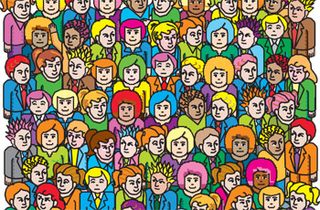If you are a Recruiter or Hiring Manager, you already know that network contacts can be very valuable. People you know become a repository for new information and new contacts.
 While this may be old news for you, the marketing world is just starting to study this topic. Due to the proliferation of online social networks, such as Facebook and LinkedIn, businesses are starting to put a monetary value on these relationships.
While this may be old news for you, the marketing world is just starting to study this topic. Due to the proliferation of online social networks, such as Facebook and LinkedIn, businesses are starting to put a monetary value on these relationships.
Business Week ran a feature article on this topic last week. Here are some insights that I picked up:
1. Most people have many “friends,” but few close contacts: The average Facebook user with 500 “friends” actively follows the news of 40 of them, communicates with 20, and keeps in close contact with about 10.
2. People tend to group other people into one of four categories:
(a) Closest Friends — You trade email with these people or have other reciprocal communications.
(b) One-way Relationships — You send email to these people or post comments on their profile pages (but they don’t respond).
(c) Just Barely in Touch — You click on something these people post on Facebook or visit their profile page more than twice.
(d) Near Strangers — You let these people into your network, but you really don’t know or interact with them.
3. So far, marketers are dismal at figuring out how to manipulate these networks for profit: It is estimated that Facebook is able to generate less than a dime per member in advertising revenue. Yes, they have a lot of members, but the end results pale in comparison to traditional advertising venues. In my hometown of Seattle, radio stations capture about $200M in ad revenue from a population base of $3.2M people. That’s over $60 per person compared to Facebook’s $0.10 per member.
So, what can we learn from all of this? First, companies are spending a lot of money trying to crack the code of social marketing. If it all seems confusing to you, you’re not alone. Companies like Facebook and Microsoft have bunches of PhDs working on this stuff and they can’t even figure it out!
Second, some of the traditional techniques you’ve used for networking should not be abandoned. Most of your results are still going to come from these techniques.
Lastly, don’t ignore the new tools, but don’t depend on them either. Spend your extra time endearing yourself to your close contacts rather than adding “near strangers” to your online network.

